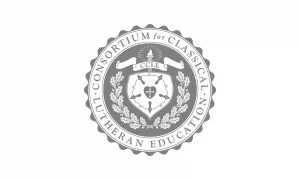
Register Now for Spring Classes
Greetings in the name of our Lord Jesus Christ! Registration is now open for Greek and Latin classes with the Institute for Classical Lutheran Education. Classes
People often ask the question: “Why Latin?” Classical Lutheran schools typically start formal Latin instruction in third grade or younger. Latin is considered a staple in classical education. But why?
Here is an excerpt from the CCLE’s second edition of Adopting Classical Lutheran Education, which provides insight on the value of studying Latin:
Historically, in a liberal arts curriculum, Latin and Greek were simply expected and were considered indispensable. While Latin is integral to classical education, many parents and teachers are not convinced that the teaching of the ancient or “dead” language is valuable today. This common misunderstanding is the product of progressive education. Beginning in the late 19th century, Latin was increasingly rejected by progressive educators who were influenced by the pragmatist view that every subject and idea should be tested by ordinary human experience to see if it holds value in everyday life situations. Therefore, Latin has come to be considered obsolete, or at least non-essential, by many educators today.
However, Latin is taught in classical Lutheran schools because:
The study of Latin is essential to classical Lutheran education. Classical schools begin Latin instruction in the elementary grades with most classical schools beginning Latin in the third grade. The addition of Latin instruction in your school will be an important step in the transition.
Consider learning Latin as an adult! The CCLE will launch our new online Latin class starting in January 2025.

Greetings in the name of our Lord Jesus Christ! Registration is now open for Greek and Latin classes with the Institute for Classical Lutheran Education. Classes

What is the most important, universally binding principle that is embraced by classical Lutheran educators? Without question, it is our confession of faith. Classical Lutheran


The Consortium for Classical Lutheran Education was recently featured in a paper published by the Heritage Foundation as one of the nine largest classical school
Copyright © 2024 CCLE